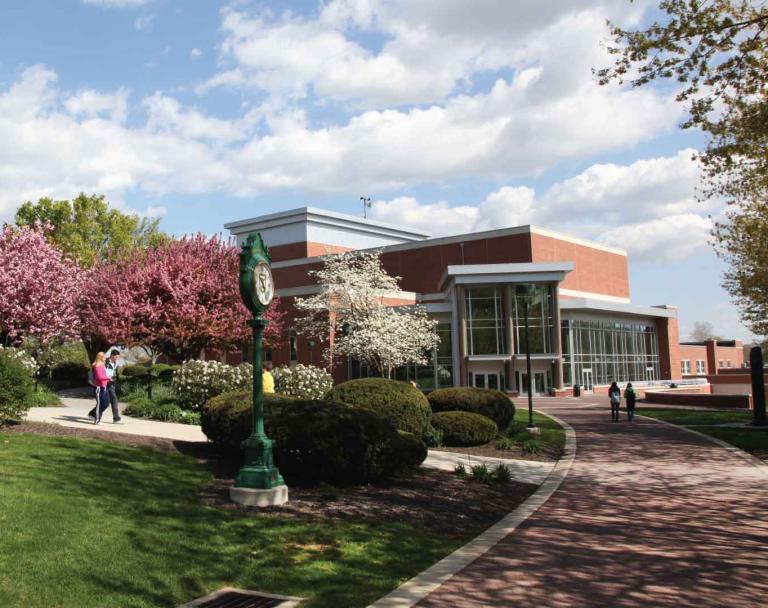Morrissey Walsh

York College partners with Keystones Oral Histories to capture untold stories of York’s Black veterans
Morrissey Walsh ’23 can’t forget the stories she’s heard. Whether she’s sorting through service records and old photographs or sitting across from someone sharing their memories, Walsh has been enthralled with the untold history of York’s Black community.
Walsh is just one of several students from York College of Pennsylvania who are rolling up their sleeves to uncover stories as part of the Keystones Oral Histories partnership. Bryan Wade, CEO of Keystones Oral Histories, approached the College last year. Dominic DelliCarpini, Dean of the Center for Community Engagement, was excited to be a sponsor of Wade’s endeavor, but he also wanted to be a partner in the work that was to be done.
“A lot of these stories have been neglected,” DelliCarpini says. “It makes sense for York College to be part of this endeavor because it not only aligns nicely with our mission and values, but it gives our students an opportunity to be involved in project-based learning.”
A series of stories
Wade hopes to create 13 different documentaries about York’s Black history, primarily the stories of Black veterans. In addition to that, Dr. Sherry (Roland) Washington, CEO of SRW Educational Consulting and a 2007 graduate of York College, is developing a curriculum that would incorporate those stories in schools throughout York County.
Whether students are interested in public history, research and analysis, or communications, there is an opportunity to gain valuable experience by assisting in this project, DelliCarpini says. There are many other disciplines, as well, including Professional Writing majors helping to write scripts, Business students working on ways to raise money or write business plans for the endeavor, as well as Sociology students researching the benefits of teaching students their own history.
“It’s important that students learn more than just the stories of those who enslaved them,” DelliCarpini says. “We can change the way things have been done.”
Uncovering history
For Walsh, a Mass Communication major with a History minor, the project has opened her eyes to the chance that those stories could be lost forever. “Without family members wanting to keep those memories alive, we may not know who these people are,” she says.
The first documentary, released at the end of December, told the story of several veterans, including World War I veteran George Wood. He was the only York County Black veteran killed in action during the war. He died in September 1918 and was initially buried in France before his family petitioned that his body be returned to Pennsylvania, where he was buried in Saint Patrick’s Cemetery. Wood’s great nephew William Armstrong was interviewed for the documentary and is working now to replace a lost gravestone.
“This project has given me a lot of great experience for the career I might pursue one day,” Walsh says. “But, more importantly, I’m helping to keep these stories alive. These stories have the power to influence future generations and tie people to their histories. That’s not something we can let fade away.”
Watch Now: The Story of George A. Wood
